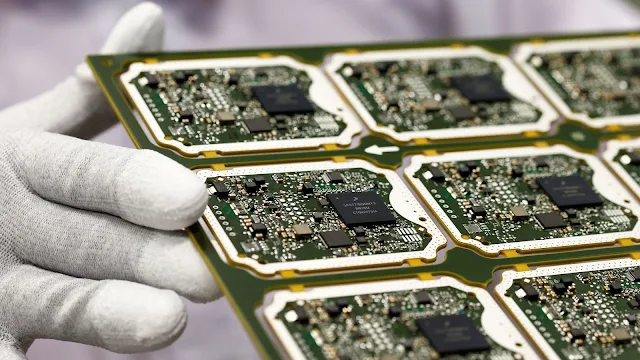Smart hack: How China used embedable electronic chips to spy the world. Yesterday’s bombshell Bloomberg Businessweek reported that, Chinese...
The Bloomberg piece talked quite specifically about malicious chips on server motherboards that were made in China for the U.S. firm Supermicro (SMCI, -22.17%) (whose share price halved on the news, unsurprisingly). It did not talk about smartphone components. And Lenovo told CNBC that it’s not a Supermicro customer. This suggests that the sudden lack of confidence in Lenovo and Apple’s suppliers is to do with Lenovo being Chinese and Apple making its devices in China, rather than them having any clear, direct link to the alleged espionage described in the Bloomberg piece.
Supermicro, Apple and Amazon (AMZN, +0.96%)—which is central to the Bloomberg report as a user of Supermicro equipment—have all strongly disputed the contents of that report. The force and breadth of those denials is notable, with observers (such as the author of this must-read analysis in The Register) seeing more here than traditional obfuscation or weasel-wording. At the same time, the Bloomberg team is highly reputable and the story appears to be well-sourced. So somebody here is either wrong or not entirely forthcoming, and it’s not quite clear who that is. That said.
Motive
All intelligence agencies inherently want to be able to spy as much as they can. They can do that over the Internet, but the real prize is sneaking in a “hardware implant” that renders a device vulnerable to espionage or takeover. China, being the preeminent manufacturing hub for so many electronic devices, is in a uniquely advantageous position to follow this path. However, China also wants to maintain its manufacturing-hub status, which is central to the country’s economy. Getting caught could be a national disaster—and this is why most observers have assumed that it’s still safe to make so much of our stuff there; because they wouldn’t try that, would they?
Even though Apple’s connection to the story is about servers that it no longer even uses—for apparently unrelated reasons—its Chinese manufacturing was already a Trumpian talking point, and this news really won’t help matters. In the light of this uncertainty, faltering confidence in Apple’s Far-Eastern suppliers is perhaps understandable.
Investors Concerns
As for Lenovo, the fear there is that, if the Chinese military managed to sneak its spy chips onto Supermicro motherboards (as used in U.S. warships, CIA drone systems and so forth), then maybe it’s managed to compromise other manufacturers too. Lenovo is a big enterprise player, and companies do not want the Chinese stealing their trade secrets. It remains to be seen whether Western business markets really do turn against Lenovo, and—what with all that controversy over the accuracy of Bloomberg‘s details—the next few weeks may be crucial on that front.







